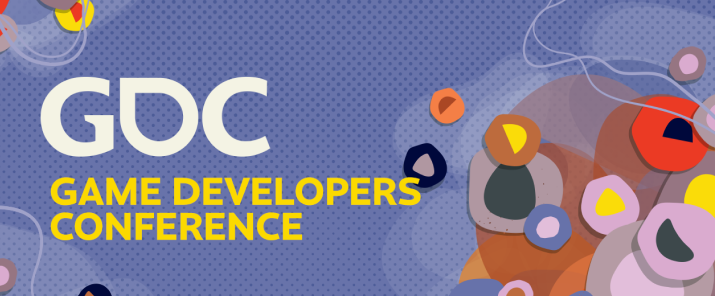
Navigating the Bus-Boom Cycle: Insights from GDC 2023
Continue reading "Navigating the Bus-Boom Cycle: Insights from GDC 2023"
Game development is an intricate process that requires a lot of coordination, collaboration, and management. From ideation to release, several people work together to create a successful game. However, with so many stakeholders involved, it can be a challenge to manage resources and stay on schedule. This is where production management comes in. Effective management practices can help game studios streamline their processes, optimize resources, and deliver games on time and within budget. In this blog post, we will explore the production puzzle and how game studios can piece together effective management practices to boost production output.
Understanding the scope of your game development project is essential for a successful outcome. It involves gaining a comprehensive understanding of the project's objectives, features, and requirements. By doing so, you can accurately assess the resources needed, establish realistic timelines, and allocate budgets accordingly.

One of the key benefits of understanding the scope is the ability to identify potential roadblocks and challenges early on. This allows you to proactively plan and mitigate risks, ensuring smoother progress throughout the development process. By anticipating potential difficulties, you can allocate additional resources or adjust the project plan to address them effectively.
Breaking down the project tasks into smaller and more manageable components is another advantage of understanding the scope. This approach enables better resource allocation and utilization. By clearly defining individual tasks and their dependencies, you can assign resources based on expertise, optimize workloads, and ensure efficient progress.
Outsourcing production management has become a popular strategy for game studios, allowing them to concentrate on their core competencies while entrusting the technical aspects to experienced professionals. By leveraging the expertise of outsourcing partners, studios can optimize their resources, streamline operations, and reduce overhead costs. This approach enables them to focus their internal teams on creative game design, development, and marketing, maximizing their efficiency and productivity.

One of the significant advantages of outsourcing production management is access to specialized skills and knowledge. Game development requires a diverse set of technical skills, ranging from programming and artwork to sound design and quality assurance. Outsourcing allows studios to tap into a talent pool of professionals with expertise in specific areas, ensuring that each aspect of the game receives dedicated attention from skilled individuals.
Moreover, outsourcing production management offers flexibility and scalability to game studios. As projects vary in scope and complexity, outsourcing allows studios to scale their operations up or down based on the project's specific needs. They can easily expand their production capacity for large-scale projects or reduce it during quieter periods, without the need for maintaining a constant in-house workforce. This scalability helps studios to efficiently allocate resources and adapt to changing market demands, resulting in improved cost-effectiveness.
Tracking and measuring productivity is a vital practice for game studios as it provides valuable insights into the progress and effectiveness of their development efforts. By utilizing tools like time-tracking software, productivity metrics, and progress reports, studios can gain a comprehensive understanding of their team's performance and the project's overall trajectory.

Implementing time-tracking software allows studios to monitor how much time is allocated to specific tasks and activities. This data helps identify potential bottlenecks or inefficiencies in the development process. It enables studios to analyze where time is being spent, whether it's on essential tasks or non-essential activities, and make informed decisions to optimize resource allocation and workflow management.
Productivity metrics provide quantifiable measurements of team performance and output. These metrics can include key performance indicators (KPIs) such as lines of code written, assets created, bugs fixed, or milestones achieved. By tracking these metrics over time, game studios can assess productivity trends, set performance benchmarks, and identify areas of improvement. This data-driven approach enables studios to make data-backed decisions and allocate resources more effectively.
One of the key advantages of Agile methodologies is their iterative nature. Instead of following a linear and rigid plan, Agile embraces continuous improvement through frequent iterations.
Cross-functional teams work together in short, time-boxed iterations known as sprints, where they collaborate to deliver incremental updates to the game. This iterative process allows for early and regular feedback, ensuring that the game aligns with the vision and requirements set by stakeholders. This feedback loop enhances the overall quality of the game and minimizes the risk of costly mistakes or misalignment.
Agile methodologies also emphasize the importance of cross-functional teams. These teams consist of professionals from various disciplines, such as game design, programming, art, and quality assurance. By bringing together individuals with diverse skills and perspectives, Agile encourages effective communication, knowledge sharing, and collective problem-solving. This collaborative environment fosters creativity, innovation, and a sense of ownership among team members, ultimately leading to higher productivity and better outcomes.
Scrum, Kanban, and Lean are three popular Agile methodologies commonly utilized in game development. Scrum provides a framework that divides work into manageable iterations, with clear roles, ceremonies, and artifacts to facilitate effective teamwork. Kanban, on the other hand, focuses on visualizing the workflow and limiting work in progress, allowing teams to optimize their processes and respond to changing priorities. Lean methodology aims to eliminate waste and maximize value by continuously improving processes and delivering value to customers quickly.
Communication and collaboration are vital for effective management practices. Encourage open and transparent communication channels, regular team meetings, and feedback sessions.

Additionally, use collaboration tools such as project management software, instant messaging, and video conferencing to facilitate remote collaboration. By doing this, game studios can ensure that all stakeholders are on the same page, and the project stays aligned with the goals.
Game development is a complex process that requires a lot of planning, execution, and management. By piecing together effective management practices, game studios can optimize resources, boost productivity, and deliver games on time and within budget. Whether it's understanding the project’s scope, outsourcing production management, tracking and measuring productivity, implementing Agile methodologies, or encouraging communication and collaboration, every piece of the production puzzle matters. By prioritizing effective management practices, game studios can create games that delight players and stand out in a crowded market.